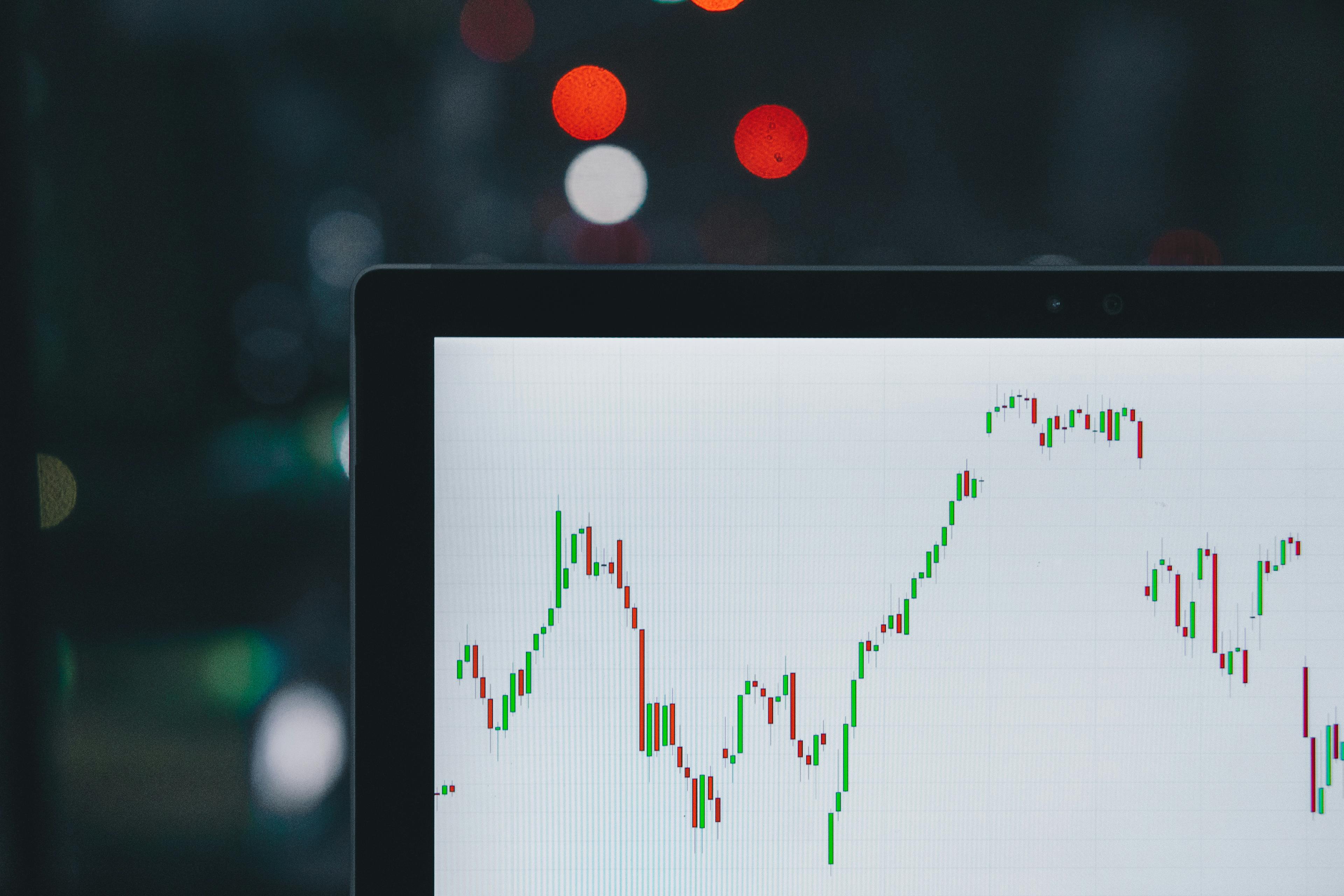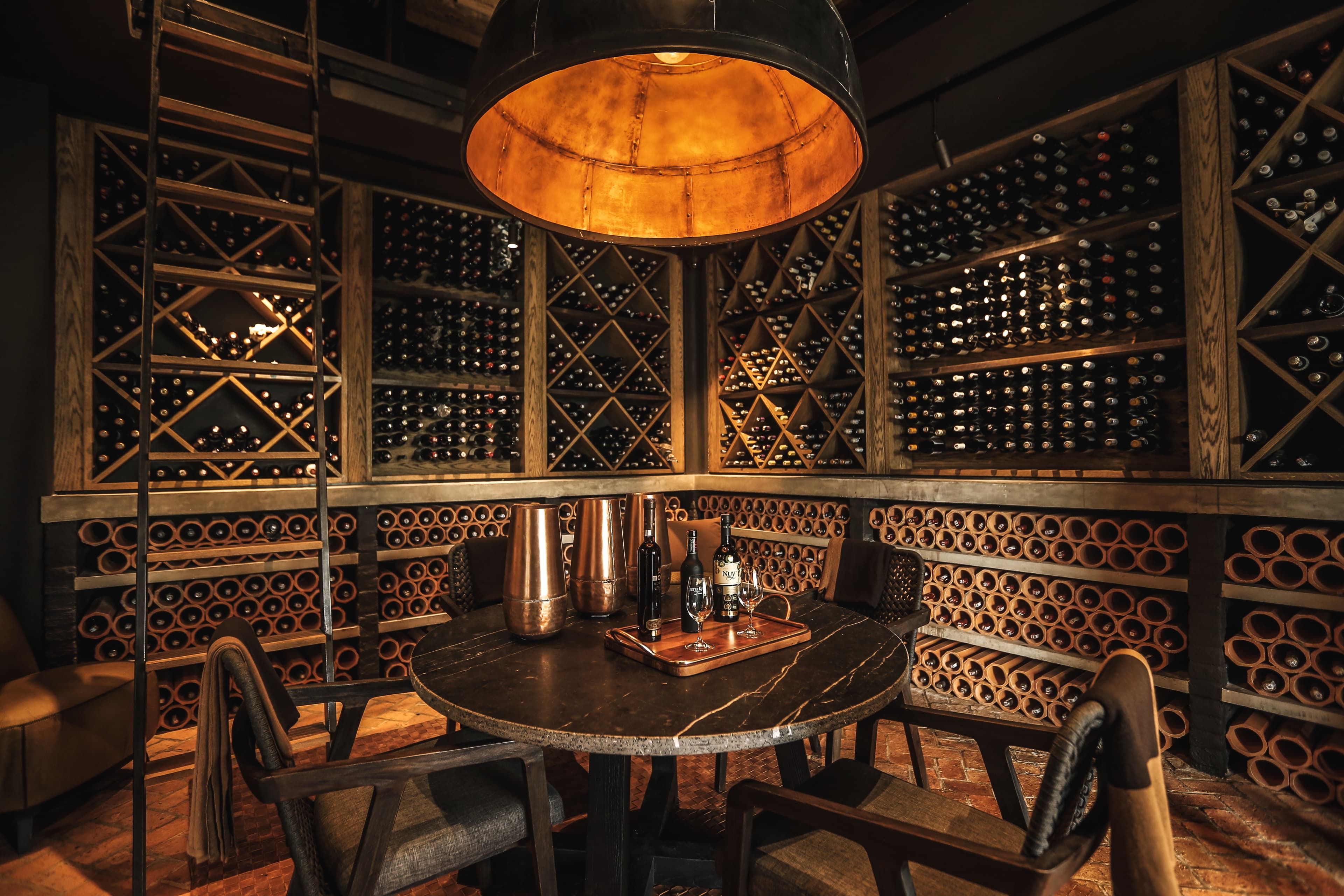Vineyard Investment: How To Do It, and Is it Worth It?
15 min read
Head of Content

Viticulture, or the study and production of grapes for wine-making, captivates wine lovers and investors. Owning a vineyard can be romanticized, but what does vineyard investment entail? This article provides insight on vineyard funds, purchasing vineyards, and starting a wine business. It also evaluates the worth of such an investment.
Vineyard Investment: What Does it Mean?
The concept of vineyard investment is multifaceted, presenting itself in two primary forms - vineyard funds and direct vineyard purchasing. Collectively, these encompass the process of investing one's capital into vineyards as a means of reaping potential financial returns over time.
Vineyard Funds
A vineyard fund is an investment vehicle managed by an investment company, which pools together capital from multiple investors to acquire stakes in various vineyards. These funds operate akin to mutual funds, where the collected funds are allocated across multiple investments to diversify risk. The returns on these investments come from the income generated by the vineyards in the form of wine sales, vineyard land valuation appreciation, and sometimes lease income.
Buy Vineyards
Alternatively, a more direct means of vineyard investment is the purchase of vineyard land itself. An investor buys a vineyard in its entirety, either for the purpose of developing a new vineyard or managing an existing one. This approach is far more hands-on, involving elements of property and operational management. Similar to vineyard funds, the financial return comes from wine sales, land appreciation, and potentially tourism-related income dependent on the vineyard's location and popularity.
Both methods of vineyard investment, while distinctly separate in their operational structure, focus on the same objective - to invest in vineyards as a tangible asset, offering not only potential financial returns but also the added benefits associated with owning a part of a cultural heritage, especially in regions known for their winemaking traditions.
However, the points to note are that these investment strategies are not without their complexities and challenges. Deciding on which vineyard to invest in, assessing the market potential of wine produced, and managing the vineyard efficiently requires a deep industry knowledge and expertise.
How To Buy And Develop A Vineyard
Entering the world of vineyard ownership and development requires an amalgamation of knowledge, financial savvy, and comprehensive understanding of wine production. Initially, interested investors should be prepared to conduct thorough due diligence and establish a comprehensive business plan before diving headfirst into this landscape.
Identifying and Buying the Right Vineyard
The foundational component of vineyard investment begins with the identification and acquisition of the right property. Due diligence at this stage cannot be overstated, and savvy investors will consider a multitude of factors. Key among these include the topography and soil composition, which significantly affects the types of grapes that can be grown and the quality thereof. Climate and weather patterns, as well as any potential for natural disasters, will also weigh heavily into this decision. Additionally, the accessibility of the property and availability or potential for necessary infrastructures, such as water access and storage facilities, should be carefully considered.
Business-focused concerns, such as the potential for profit and the projected return on investment (ROI), should always be the guiding factors in the decision-making process. The existing production capacity of the vineyard, combined with the marketability of its existing or potential wine varieties, will be key factors in its profitability. Finally, a prudent investor will also validate the legal aspects of the property, including zoning and land use restrictions, and the presence of any liens or encumbrances.
Developing Your Vineyard: Strategic Planning and Execution
Upon securing a suitable and potentially profitable vineyard, the next stage involves development. Here, a calculated and well-planned strategy backed by industry-specific knowledge could mean the difference between a flourishing wine haven and a. costly failure
One prudent strategy includes employing an experienced and reputable vineyard manager. The role of this individual cannot be underestimated, as they will oversee all aspects of the vineyard’s operations and maintenance, including vine planting, watering and fertilizing, pruning, harvesting, and disease and pest control. Conversely, for investors who wish to take on the management role themselves, it is highly recommended they undertake a comprehensive education in both vines and wine production.
Additional considerations for the development phase include deciding on the most profitable grape varieties to plant, mastering the art of wine blending, and establishing a strong brand presence in the market. Striking the right balance between these factors can result in a successful and profitable vineyard investment.
In conclusion, investing in and developing a vineyard is not only a substantial financial undertaking, but it also requires an immense amount of planning, industry knowledge, and strategic execution. However, with the right due diligence and a carefully constructed strategic plan, investors can reap the considerable rewards offered by a successful vineyard investment.
Pros and Cons of Owning Your Own Vineyard
Investing in and owning a vineyard can indeed be an attractive proposition for many, especially those with a passion for wine. It has the potential to offer financial returns, prestige, and the gratifying ability to produce one's own vintage. However, such an investment is not without its share of drawbacks. Understanding both the advantages and the challenges is crucial in making an informed decision.
Pros of Owning a Vineyard
On the plus side, here are a few compelling advantages:
Financial returns: If managed effectively, a vineyard can yield significant profits. The wine market, specifically for premium and ultra-premium wines, continues to grow year by year.
Lifestyle appeal: Owning a vineyard comes with an intrinsic lifestyle appeal. It offers the owner an opportunity to engage in a sophisticated and glamorous business.
Legacy: A well-maintained vineyard can be passed down through generations, creating an enduring legacy.
Tax advantages: Certain areas offer significant tax incentives for agricultural activities, including viticulture.
Cons of Owning a Vineyard
Conversely, it's vital to weigh in on these potential downsides:
High Start-Up Costs: Initial investment in a vineyard can be substantial due to land acquisition, vineyard setup costs, and winery construction if not already on-site.
Variable Returns: Yield from a vineyard is dependent on various uncontrollable factors such as weather conditions, pests, and disease outbreaks, making for unpredictable returns.
Skilled Labor Requirements: Running a successful vineyard requires expert knowledge and skills in vine planting, grape harvesting, wine making and marketing. This necessitates hiring skilled labor which can be a significant recurring cost.
Regulation: Owning and operating a vineyard means dealing with government regulations, agricultural permits, and zoning laws that can be complex and costly to comply.
Attuning oneself to the pros and cons inherent in owning a vineyard is thus essential before proceeding with such a substantial investment. Those who are well prepared, both financially and mentally, may well find owning a vineyard a highly satisfying and lucrative endeavor. On the contrary, those unprepared may find the journey fraught with pitfalls and struggles. The next section will delve deeper into some common errors while buying a vineyard and how to avoid them.
Mistakes People Make When Buying A Vineyard
Investing in a vineyard carries inherent risks and challenges that are often overlooked or underestimated by novice investors. By noting the common mistakes made by others, potential investors can navigate the vineyard buying process with increased confidence and insight. Below are some of the most frequent pitfalls encountered when purchasing a vineyard.
Failure to Conduct Appropriate Due Diligence
Before purchasing a vineyard, thorough due diligence is paramount. This includes understanding the property's microclimate, soil conditions, and topography, all of which significantly influence the vineyard's potential success. Furthermore, it is vital to assess the vineyard's historical profitability, potential yields, and the health and age of its vines. Some investors make the costly mistake of skipping or shortcutting this crucial step, leading to unexpected challenges and costs down the line.
Lack of Comprehensive Financial Analysis
Another common mistake is underestimating the costs involved in owning and operating a vineyard. Prospective buyers often focus solely on the purchase price, forgetting other key expenditures such as maintenance, repairs, labor, equipment, and marketing. A comprehensive financial forecast that includes all costs and potential revenue streams is vital to ensure a profitable investment.
Misjudging the Time and Effort Required
Vineyards require considerable labor and continual surveillance. The assumption that owning a vineyard merely involves tending to grapes and making wine is a misconception. Viticulture is an exacting science, and the cultivation of healthy, productive vines demands both time and expertise. Several investors underestimate the time, energy, and knowledge required to maintain a vineyard, resulting in a less than productive enterprise and a swift disillusionment with the venture.
Overestimating Personal Skillset
It is not uncommon for investors to buy vineyards with the view of it being a hobby. However, a lack of viticultural experience and understanding of the wine business can prove disastrous. Overestimating one's ability to manage these complex operations often leads to operational difficulties and poor financial performance. It is beneficial, if not essential, to consider enlisting the help of knowledgeable professionals in the field to ensure success.
By avoiding these common mistakes, investors significantly increase their chances of owning a productive and profitable vineyard. It's essential to approach a vineyard investment with full awareness of its challenges, a comprehensive business plan, and realistic expectations – entwining passion and pragmatism to yield a fruitful investment.
Is Vineyard Investment Right for You? Assessing Your Personal Goals and Resources
Assessing the suitability of vineyard investment not only involves understanding the intricacies of the wine industry, but also requires a careful review of one's personal goals and available resources. Depending on the investor's aspirations, financial status, and risk tolerance, vineyard investments can either present a lucrative opportunity or pose a significant challenge.
Clarifying Personal Goals
The individual investor must first identify their specific objectives for entering the world of vineyard investment. The purchase of a vineyard can serve a range of purposes. For some, it might fulfill a lifelong dream of becoming part of the prestigious winemaking community, while others see potential for creating a family business to pass down through generations. Then there are those that view vineyard investments purely from the financial perspective, seeking to capitalize on the high returns and status associated with the industry.
Recognizing these personal motivations brings crucial clarity to the decision-making process. Each of these goals demands different levels of involvement, with elements such as establishing a brand-name winery or managing an estate and its operations, possibly requiring significant hands-on management and familiarity with the industry.
Evaluating Financial Resources
Another vital aspect in assessing the feasibility of vineyard investment involves a thorough analysis of one's financial status. It is essential to remember that investing in a vineyard requires substantial financial outlay, both in terms of the initial investment needed to purchase the land and the ongoing operational expenses. Therefore, potential investors should have a clear understanding of their budgetary restrictions.
Careful financial planning should include not only account for the initial cost of acquiring the vineyard but also the capital required to fund the various stages of vine development. This includes costs related to soil preparation, vine planting, pest and disease control, pruning, harvesting, winemaking, and marketing. Complications such as unanticipated weather conditions, pests, and market fluctuations can introduce additional financial pressures adding to the overall risk and unpredictability associated with this form of investment.
Understanding Resource Commitments
Aside from the distinct goals and financial aspects, the potential vineyard investor must understand the resource commitments involved. The investment goes beyond being simply monetary; it requires considerable time and effort spent on vineyard management and winemaking. Knowledge of viticulture, understanding local terroir, overseeing the winemaking process, grape harvesting, and wine marketing, are among the multitude of tasks that need to be managed in a vineyard operation.
If managing these operations personally is unfeasible, hiring a vineyard management team is an alternative. However, such a decision adds to the expenses borne by the investor and decreases the level of control over the vineyard.
Thus, when considering whether vineyard investment is the right fit, one must carefully evaluate their personal goals, financial capabilities, and readiness to commit the necessary resources. This self-assessment lays the groundwork for an informed investment decision, which can then be furthered refined with expert guidance and thorough due diligence.
Easier Approach To Invest In Fine Wine: Investing In Wine Bottles Through Rekolt
Investing in fine wine bottles through a wine collecting marketplace like Rekolt will help you reap the benefits of the high-growth wine market!
How Do You Invest in Wines Via Rekolt?
It’s as simple as this:
Purchase a wine on the Rekolt marketplace.
You can then sit back and watch your portfolio grow over time as Rekolt, authenticates and stores the fine wines for you.
The Benefits of Rekolt
Best Prices
Investing via Rekolt promises access to highly competitive prices, which often outstrip what one might encounter when purchasing a vineyard directly.
Renowned viticultural regions are invariably associated with high price tags, significantly increasing the initial investment outlay.
Conversely, Rekolt, leveraging robust relationships with global suppliers, wineries, and auction houses, procures fine wines at optimal prices, ensuring heightened cost efficiency for investors.
An Expertly Curated Portfolio
Rekolt supports investors in exploring the diverse world of fine wines by offering a carefully chosen portfolio. This contains a variety of well-known classics and promising new wines from esteemed vineyards worldwide.
The portfolio minimizes risk and maximizes possible returns through a range of maturation times. This ensures a consistent cycle of sellable assets, providing liquidity as required.
Optimal Storage and Safety
Our state-of-the-art wine storage facilities are specifically designed to uphold the highest standards of safety and quality control.
We ensure ideal temperature regulation, lighting conditions, and humidity levels, all of which are critical factors affecting the aging process and, ultimately, the taste and quality of the wine. These conditions are monitored and maintained 24/7, shielding the wines from any damaging environmental fluctuations.
Comprehensive Insurance
Each wine is covered by comprehensive insurance, designed meticulously to protect the investor's portfolio from damage or loss. This includes complete coverage for the physical loss or damage of wine and includes situations such as breakage, theft, water and fire damage.
Global Network
The final benefit on offer through Rekolt is access to a global network: a massive and interconnected community of fellow investors, wine producers, and sellers. This network is not to be undervalued. It provides investors with broad insights into the world's wine markets, garners knowledge from many different sources, and offers in-depth analysis of industry trends.
Why is it Better than Investing in Vineyards?
Easy to Buy and Sell Your Assets
Investing through Rekolt brings the unique advantage of easy asset management. The process of buying and selling selects wine investments is as simple as a few clicks. Without the hassle of physically managing a vineyard or the need to navigate complex real estate transactions, investors can buy or sell their wine assets on the Rekolt platform at any time. This provides liquidity and flexibility, elements that traditionally lack in vineyard investments.
Expert Wine Advisory Team
The team of expert wine advisors at Rekolt ensures that investors are making informed decisions. These professionals have deep knowledge of the fine wine market and use industry data, trends, and sophisticated analysis to select high-performing wines. Whether an investor is just starting their wine investment journey or is an old hand, the expert advisory team at Rekolt provides invaluable guidance every step of the way.
Access To a Deep Network
With Rekolt, investors gain access to a deep global network. This includes highly sought after wineries and wine markets around the world. Such networks are typically exclusive to seasoned investors or industry insiders, but investing via Rekolt bypasses this presupposed requirement. This level of access offers an advantage against the competition and helps investors secure top-performing assets.
Much Lower Investment
The financial barrier to entry in vineyard investments can prove formidable for many potential investors, given upfront costs, ongoing maintenance expenses, and perhaps even regulatory fees. Through Rekolt, investors can participate in the profitable wine market with significantly less capital. By economizing on entry, the platform enables a more diversified risk distribution and fosters a more equitable investment environment.
Hedge Against Market Volatilities
Wine as an asset class has historically shown low correlation with mainstream financial markets, thus potentially providing a valuable hedge against market volatility. When traditional investments face downturns, wine investments can maintain, or even increase in value. By enabling a lower entry point and a more diversified asset portfolio, Rekolt facilitates investment in this potentially stabilizing asset, providing a safety net that can be particularly beneficial in times of financial instability.
Conclusion
Investing in vineyards can indeed be a fruitful venture. However, it requires a significant investment of financial resources, time, and knowledge about the viticulture industry. Prospective investors must also conduct comprehensive due diligence, possess a realistic assessment of their skills, and firmly understand the commitment required to manage and develop a vineyard.
Moreover, it is important to realize that the potential return on investment is not immediate and is, to a considerable extent, subject to various economic and environmental variables. Missteps in any of these areas can decrease profitability or even result in significant losses.
Yet, there exists an alternative for individuals who are intrigued by the high-growth fine wine market but do not possess the wealth or the capacity to manage a whole vineyard personally. Rekolt provides a less risky and highly easy-to-access platform that allows one to reap the benefits of this industry at a fraction of the cost. Furthermore, it eliminates the necessity to handle the operational aspects of a vineyard while maintaining access to an industry's growth.
Through Rekolt, investors have access to a globally curated portfolio of fine wines and the necessary expert advice, which considerably reduces investment risk. Also, wines held in optimal conditions under comprehensive insurance and in registered repositories guarantee asset preservation. This system's flexibility allows one to quickly buy and sell assets and offers a hedge against market volatilities. This strategy significantly reduces the entry barriers for anyone who aims to participate in the wine industry's investment benefits.
Share this article



